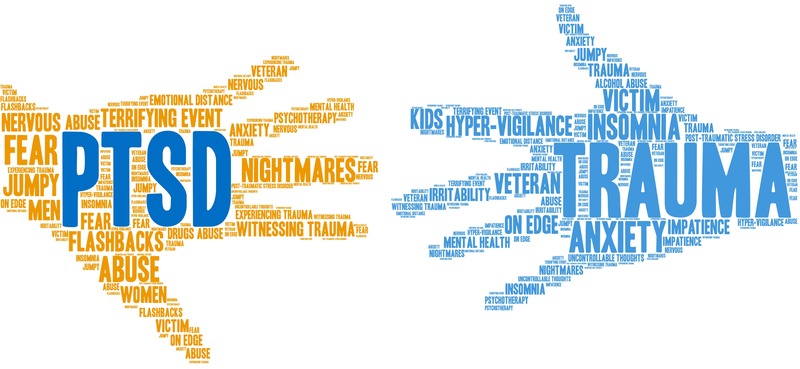Message Jim for a Free Consultation at (760) 212‑0444

Trauma is an emotional response to a stressful event such as abuse, assault, combat, death, and disasters. Almost everyone who experiences a scary situation will show at least a few signs of Post-Traumatic Stress (PTS). That’s because when we’re under intense stress, our brains are hard-wired to tell our bodies to tense our muscles, breathe faster, and pump more blood. PTS is the “fight—flight–freeze” response that prepares our body to deal with a threat or challenge in our environment by pumping more blood and oxygen to our muscles and shutting down non-critical functions like digestion. These are normal reactions during—and sometimes after—traumatic events.
Not everyone who experiences PTS (a normal response to stressful experiences) will struggle with PTSD.
PTSD (Post Traumatic Stress Disorder) is about duration and intensity. Some of the common symptoms of PTSD include reliving the traumatic event through nightmares, flashbacks, constant ruminations, and avoidance of people, places or things that remind us of the traumatic event. Symptoms that continue for more than a month—and are severe enough to interfere with our daily functioning are characteristics of PTSD.
POP QUIZ:
- Do you experience flashbacks?
- Do you have recurrent memories of past traumatic experiences?
- Are you experiencing insomnia, nightmares, and night terrors?
- Do you have gaps in your memory?
- Do you experience muscle tension?
- Are you restless?
- Are you hypervigilant?
- Do you experience guilt and sadness?
- Do you have a lack of focus?
- Do you have outbursts of anger?
- Do you engage in self-destructive behaviors?
- Do you have a crushing feeling of loneliness and isolation?
- Do you have a fear and avoidance of places and situations that might cause feelings of panic, entrapment, helplessness, or embarrassment?
- Is your perspective on the future gloomy?

About 8 million adults have PTSD during any given year. Recovery from PTSD can be a gradual, ongoing process. There are many steps you can take to cope with the residual symptoms and reduce your anxiety and fear. Just talking things out with a trusted counselor can be all we need to feel better. Some clients find it helpful to work on solutions only—others find value in seeing if problems from the past are alive in the here and now. Some like to work on both. I’m here to meet you right where you are and to work on the things that are important to you. I would enjoy hearing from you and being a part of your wellness team!
Message Jim for a Free Consultation at
(760) 212-0444